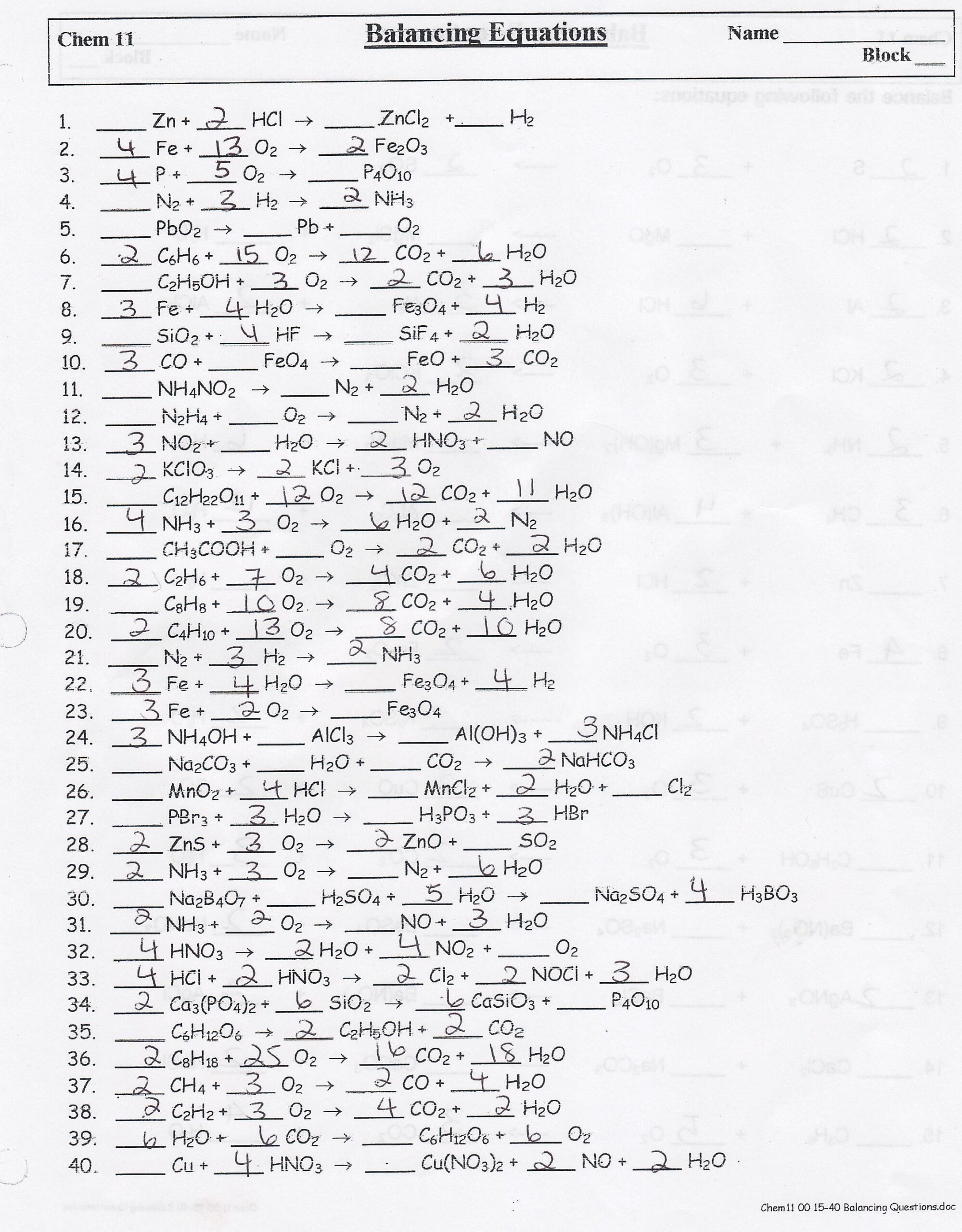Chemical equations are a fundamental part of chemistry, allowing us to represent the reactions that occur between different substances. Balancing these equations is crucial to ensure that the law of conservation of mass is upheld, with the same number of atoms of each element present on both sides of the equation.
Chapter 7 of your chemistry textbook likely delves into the process of balancing chemical equations. This involves adjusting the coefficients in front of each compound to ensure that the number of atoms of each element is the same on both sides of the equation. It can be a challenging task, but with practice, it becomes easier to grasp.
When balancing chemical equations, it is important to start by identifying the different elements present in each compound. Begin by balancing elements that appear in only one compound on each side of the equation, then move on to more complex elements that appear in multiple compounds.
Remember that coefficients in front of compounds can be adjusted to balance the equation, but subscripts within compounds should never be changed. It is also important to check your work once you believe the equation is balanced, ensuring that the number of atoms of each element is equal on both sides.
Practice makes perfect when it comes to balancing chemical equations. The more equations you work through, the better you will become at quickly identifying the coefficients needed to balance each equation. Don’t get discouraged if it takes some time to master this skill – it is an essential part of understanding chemical reactions.
In conclusion, balancing chemical equations is a fundamental skill in chemistry that allows us to accurately represent the reactions that occur between different substances. Chapter 7 worksheets that focus on balancing chemical equations provide valuable practice in this essential skill. By following the steps outlined in your textbook and practicing regularly, you will soon become proficient at balancing chemical equations.
